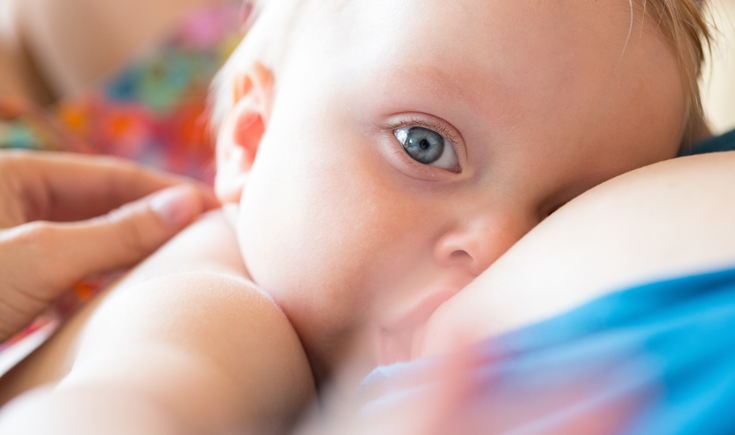

The food we eat doesn’t just impact our own bodies.
The food we eat is metabolised and enters our bloodstream and breast milk is made from the blood.
So, for breastfeeding mothers, traces of your diet will pass into your breast milk, which is a great way for your baby to become accustomed to foods.
“A wide variety of foods in the mother’s diet will help to expose the baby to a variety of tastes, as different foods in the diet do change the taste of the breast milk,” says dietitian Kate Save.
“The overall fat, lactose and protein content of breast milk is largely unaffected by your diet, however the fat composition.”
According to Save, if your baby already has a food sensitivity, breastfeeding is one way of finding out.
Food proteins, food chemicals and flavours from the diet go through to the breastmilk.
If your baby is allergic or intolerant to these small amounts of foods from the mother’s diet, then they may have adverse reactions.
Common Sensitivities
A food allergy is a reaction to the protein present in foods. The most common allergenic foods are:
- Cow’s milk
- Soy
- Wheat
- Nuts
- Eggs
- Fish
Many other foods cause a baby to become irritable, however, are less severe and symptoms generally improve over 24 hours. These include:
- Gas producing vegetables, such as cabbage, cauliflower, brussel sprouts, broccoli, kale, radish, cucumbers, onions, green peppers, legumes, beans, chilli and garlic.
- Acidic fruits, such as oranges, lemons, limes, grapefruits, strawberries, pineapple and kiwi.
What are the symptoms?
Common symptoms of food sensitivities in babies are:
- Gassy, colic/wind in the bowel
- Vomiting/reflux
- A baby that appears to be in pain/irritable
- Abdominal discomfort – often characterised by pulling legs up
- Rash
- Eczema
- Abnormal stools, such as the presence of blood or mucous
However, these symptoms are not exclusive to food sensitivities, many of them are just normal baby behaviour.
What next?
Save suggests consulting your GP, dietitian or paediatrician for advice if you have concerns about your baby.
If you wish to continue breastfeeding, removing things from the diet can be helpful, under the guidance of a Dietitian, she says.
“Keep a food and symptom diary detailing the foods the mother eats, as well as times of breast feeding and the symptoms that the baby shows.”
Tips
Exclusively breastfeeding for the first 6 months of life has been shown to significantly lessen the risk and severity of food allergies,” says Save.
“It is advised to start solids in a babies diet around 6 months, with an aim to introduce as many new foods as possible in the first few months.
“Don’t delay commencing certain foods, as this can increase the chance of developing allergies.”
Introduce the major allergenic foods as soon as possible – cow’s milk, nuts, eggs, soy, fish and wheat should all be introduced as soon possible. Foods to avoid in the first year is honey as it can cause botulism in babies under 1 year old.























